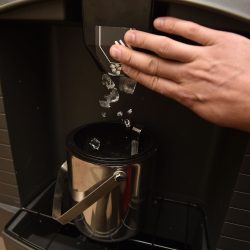Most home refrigerators today are quiet. However, sometimes you will hear a noise while your refrigerator is running if you are close to it. The sound could be the same as running water gurgling, which can be troublesome for some owners. We researched what causes this and other refrigerator noises.
The running water gurgling sound is mostly due to the refrigerator's normal functions. A possible reason is the automatic ice maker. When the water supply reaches the needed temperature, it sends the water to the inlet valve. The water flows into the ice-maker tray and freezes. This cycle is continuous and produces a gurgling noise.
It is natural for a refrigerator to make sounds, and most of the time it's not an issue. Are you still worried about the sound your refrigerator makes? Continue reading for more information about these noises.
Other Causes That Create Water Gurgling Sounds
The gurgling sound your refrigerator produces can also be caused by condensation. This sound happens when you open and close the refrigerator. The cold air gets into contact with moist air, which causes contraction. The air gets drawn from the drain tube and produces a gurgling sound.
Another cause of the gurgling sound is when the refrigerator is defrosting. This sound is not an issue, and it may take about 30 minutes for the sound to stop.
Is It Normal For A Fridge Compressor To Make Noise?
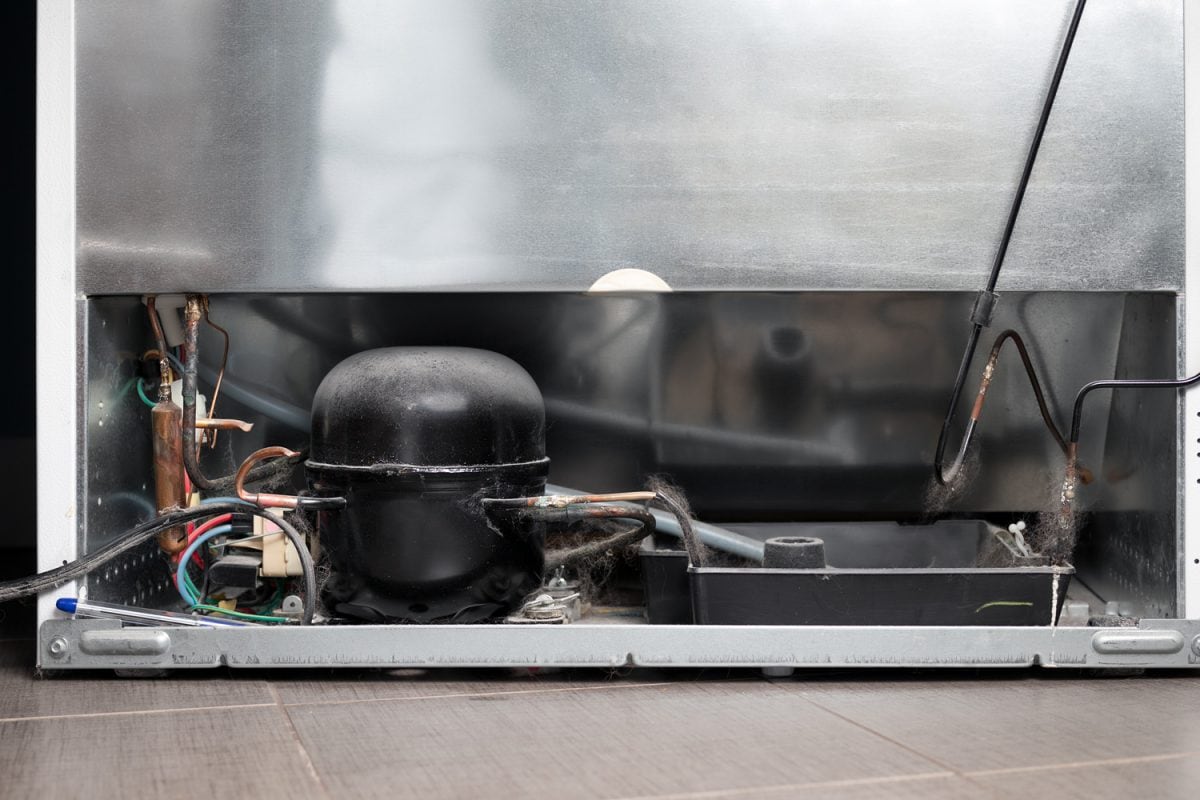
The compressor does the most work in a refrigerator's system, so it is natural that it makes noises. The compressor contains a pump and motor, moving the coolant throughout the unit while it pushes hot air out as waste. You can hear the compressor making buzzing and whining sounds.
Other Common Noises Of A Refrigerator
Aside from the ice maker and compressor, here are other sources that may make sounds in your fridge:
Drip Tray
You will hear hissing and dripping sounds with sizzling and gurgling noises. It is natural because those noises are the sounds of water getting drained from inside the refrigerator.
Refrigerator Walls
The walls expand and contract when the temperature changes, causing them to make clicking, popping, cracking, or creaking sounds.
Why Your Refrigerator Makes A Vibrating Noise
As mentioned, these noises are normal. The noises may come from inside or outside. They can also come from the ice maker or the freezer compartment.
The reason why your refrigerator makes a vibrating noise may be because it is not steady. Level your refrigerator and fix the base grille at the bottom of the unit. Adjust the screws of the unit's leveling.
Why Is Refrigerator Fridge Humming or Pulsating
A humming or pulsating noise means the ice maker is not connected to the water supply, and the water valve is still closing and opening.
You may check if the ice maker is off. That is one of the causes why the water valve is functioning and making a pulsating or humming noise.
What Causes A Buzzing Noise In A Refrigerator
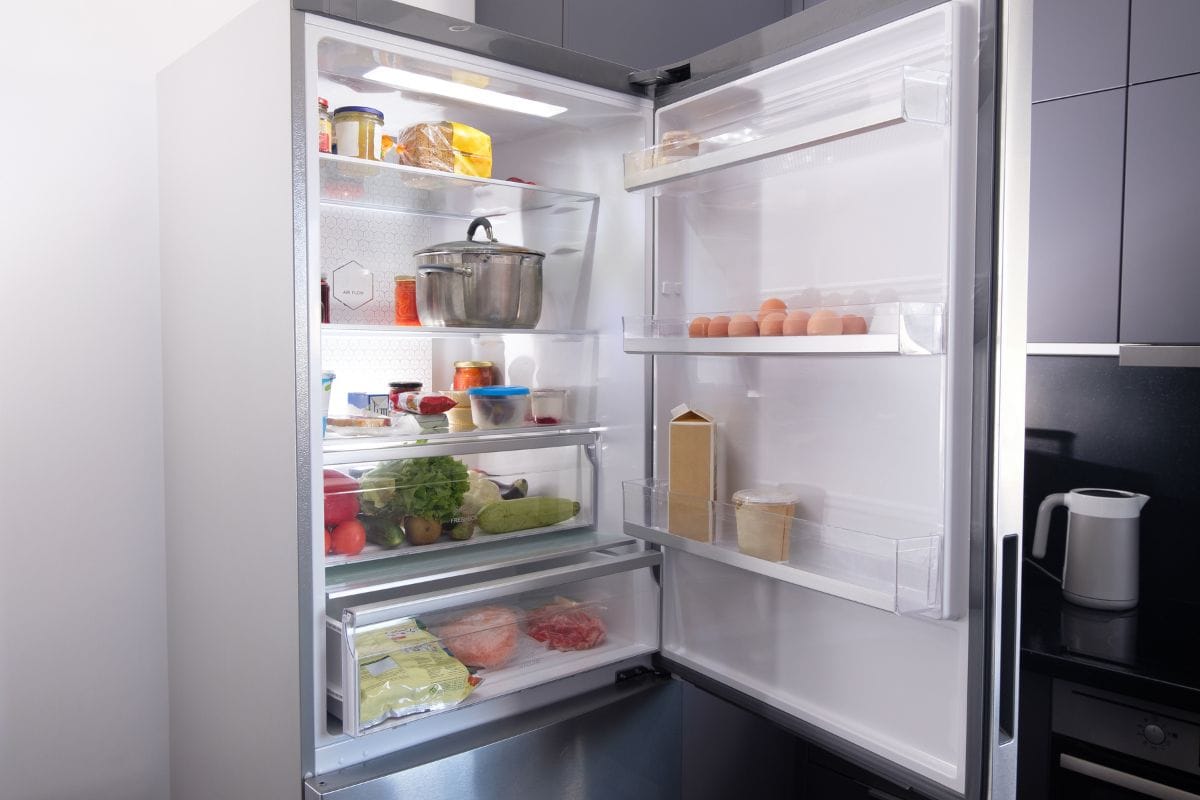
A buzzing sound is natural, though sometimes it may sound different than usual. The causes could be different depending on the fridge's make and model.
Always check the user manual for references or contact the manufacturer if you have further questions regarding your refrigerator. Here are the general reasons why it is making a buzzing noise:
Top
If the buzzing sound comes from the top, the possible cause could be the temperature control, defrost heater, or the evaporator fan.
Middle
If the buzz comes from the middle portion of the refrigerator, the cause could be the gasket, the condenser, or the coils.
Bottom
A possible reason why the refrigerator makes a buzzing noise at the bottom could be the defrost timer, the compressor, or the drain pan.
When Not To Worry About Refrigerator Noises
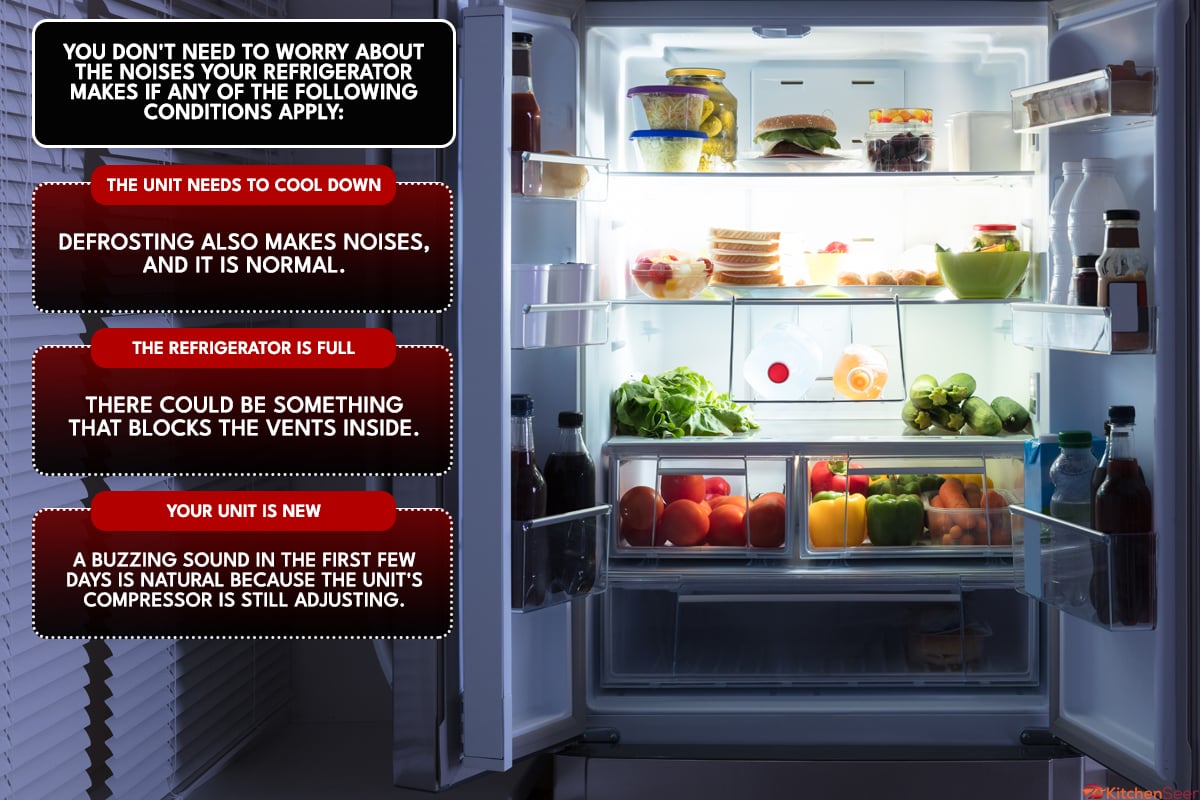
You don't need to worry about the noises your refrigerator makes if any of the following conditions apply:
- The unit needs to cool down. Defrosting also makes noises, and it is normal.
- The refrigerator is full. There could be something that blocks the vents inside.
- Your unit is new. A buzzing sound in the first few days is natural because the unit's compressor is still adjusting.
Why Your Fridge Won't Turn On
One reason could be due to a faulty thermostat. The thermostat is responsible for monitoring the temperature inside. If the thermostat is not functioning well, it won't detect the temperature and signal the compressor to turn on the refrigerator.
Your refrigerator also might not turn on after defrosting. Here are some possible reasons for it:
Dirty Condenser Coil
A lot of heat dissipates during the conversion of high pressure in the condenser. If the condenser coil is full of debris and dirt, the heat stays inside the refrigerator, which causes reduced cooling.
Faulty Evaporator Fan
The cool air can't circulate from the freezer to other compartments if the evaporator fan does not function well.
Refrigerant Issue
If there is a leak in the refrigerant hose, it affects the refrigerator's cooling. The refrigerant acts like blood in the unit's refrigerant cycle.
What To Do If The Fridge Gasket Is The Cause Of Noise
If the gasket is noisy and dirty, use warm water with dishwashing detergent to clean it up. Dip a cloth or rag in the solution and squeeze the excess liquid. Gently wipe the rag around the gasket. If it still doesn't work, you may need to replace the gasket.
What To Do If The Condenser Fan Is Faulty
First, unplug the unit from the power source, pull it away from the wall, and pull out the rear access panel from the bottom. Plug it back into the power source.
The condenser fan should turn on at the same time as the compressor. If the fan is the cause of the noise, replacing it could do the work. A faulty compressor can cause the condenser fan to not turn on properly.
What To Do If Fridge Won't Turn On After Outage?
A power outage can affect refrigerators and could cause power issues. If you experienced a power outage and the fridge won't turn on or cool down when the power went back, you may try these to troubleshoot:
- Check the circuit breaker.
- Ensure that the fridge is on or off before the power outage.
- If the fridge is on, restart using the power button on the unit. If it is off, turn it on.
- Try turning the refrigerator on and off. If nothing works, it's time to call an electrician.
Why The Fridge Won't Turn On After Moving
If you moved your refrigerator from one location to another, and it won't turn on, it might have a damaged compressor. This problem happens when the refrigerator is transported while it is in a laying down position.
You will need a compressor replacement if this happens. Take note that the proper way of transporting a fridge is in an upright position.
When Can I Turn A Refrigerator On After Moving
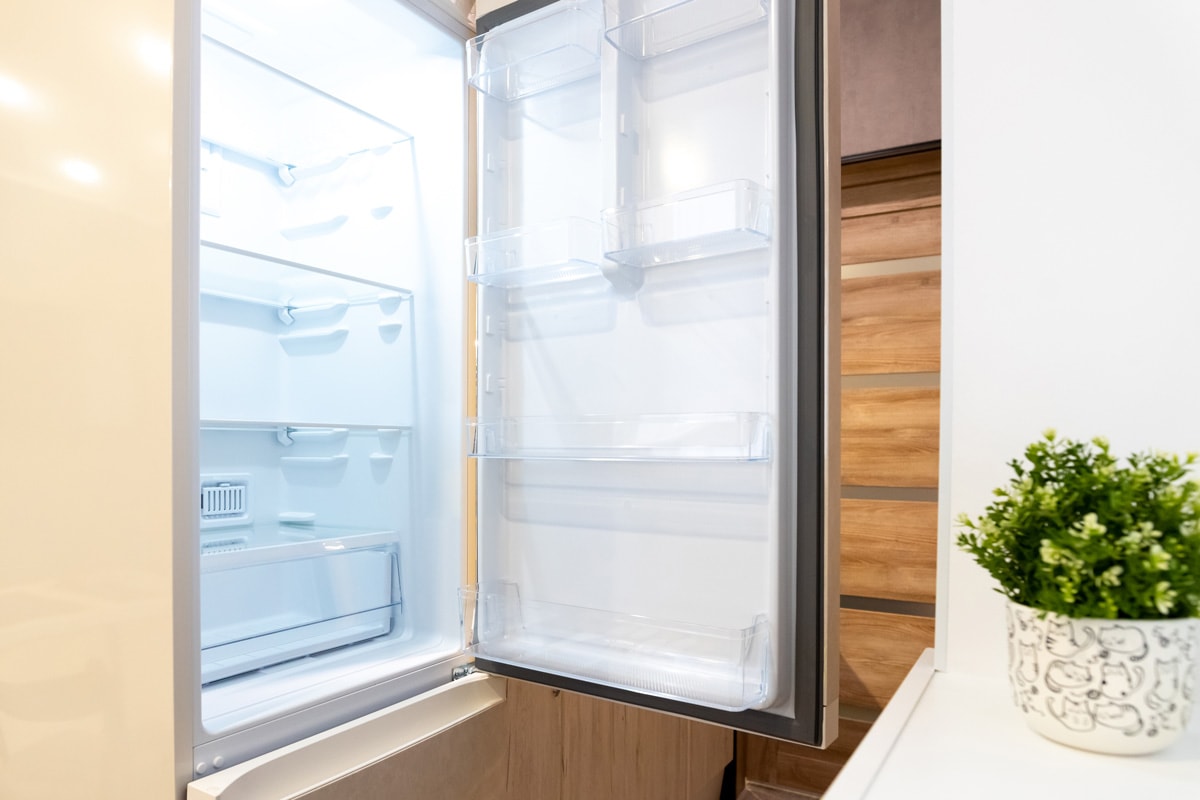
You can turn on the fridge immediately if its position was upright during moving. If the refrigerator was in a side position during transit, leave it off for the same amount of time it was positioned sidewards. If the fridge was transported for more than 24 hours, you should wait 24 hours before turning it on.
You may call a technician to replace the compressor. Take note that the refrigerator should never be positioned sideward while in transit. You can remind the moving service to avoid compressor damage in the future.
Summing Up
A refrigerator makes gurgling noise because of normal functions such as the water supply flowing to the ice maker and producing ice, and this cycle is a continuous process. If you hear a different noise that doesn't seem right, you can do simple troubleshooting to find what's causing it.
If you have more concerns regarding refrigerator noises, you may read these posts:
Why Does My Fridge Sound Like A Cow?
Why Does My Fridge Sound Like A Frog?
Fridge Buzzing Stops When Door Open—Is This Ok?
Why Does My Refrigerator Vibrate?

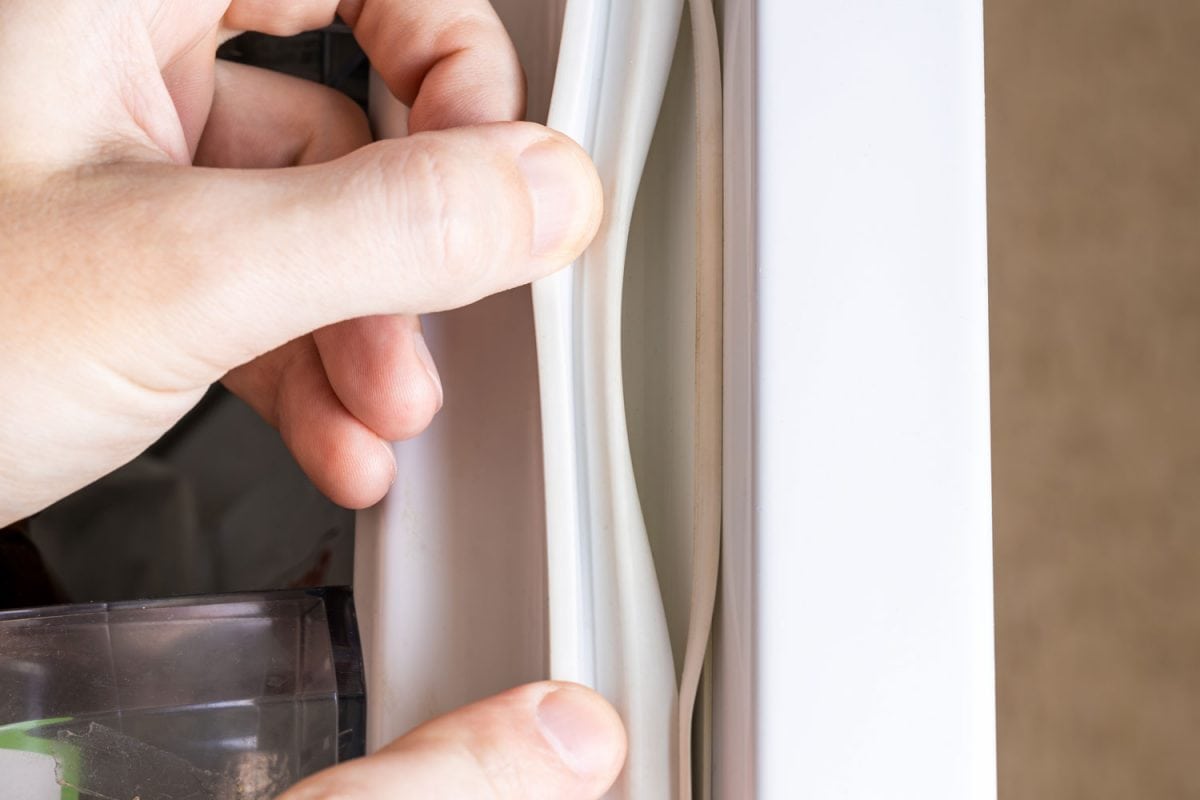
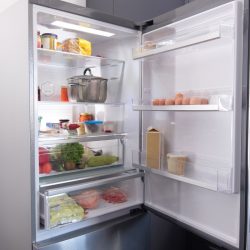
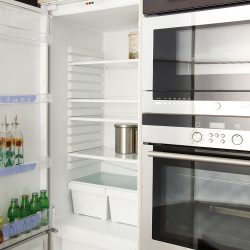
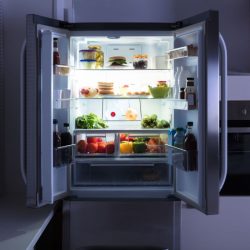
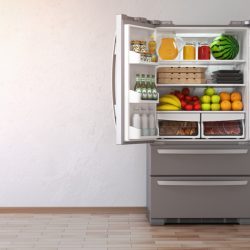
![Disassembled refrigerator compressor, How To Quiet A Noisy Refrigerator Compressor [8 Different Ideas]](https://kitchenseer.com/wp-content/uploads/2022/03/Dissaembled-refrigerator-compressor-250x250.jpg)
